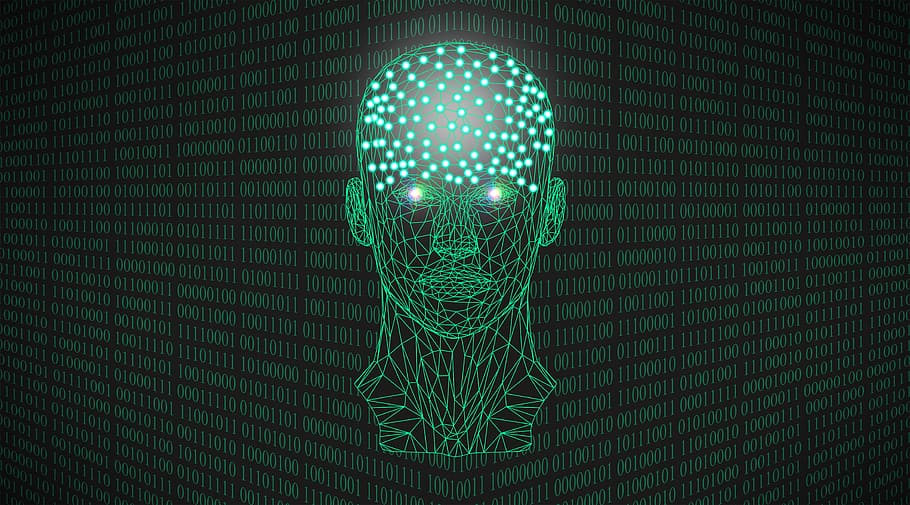In today’s fast-paced digital age, technology continues to revolutionize the way we communicate. One such groundbreaking innovation is AI voice cloning, a technology that has been making waves in various industries. In this 2000-word article, we will delve deep into the world of AI voice cloning, exploring its applications, implications, and the exciting possibilities it holds for the future of communication.
Understanding AI Voice Cloning
Voice cloning technology, powered by artificial intelligence, has emerged as a game-changer in the realm of communication. It allows machines to mimic human voices with astonishing accuracy, opening up new possibilities and raising ethical questions in equal measure. In this article, we will explore AI voice cloning in-depth and its implications for the future.
What is AI Voice Cloning?
AI voice cloning is a cutting-edge technology that enables the replication of human voices through artificial means. It involves the use of deep learning algorithms and extensive datasets to analyze and reproduce the unique characteristics of a person’s voice.
How Does AI Voice Cloning Work?
To create a voice clone, the technology uses a two-step process. First, it collects and analyzes a vast amount of audio data from the target individual. This data includes not only the words spoken but also the nuances of speech, such as pitch, tone, and rhythm. Once the system has learned these intricacies, it can generate speech that sounds remarkably similar to the person it has cloned.
The Evolution of Voice Technology
Voice technology has come a long way from the early days of text-to-speech. AI voice cloning represents the pinnacle of this evolution, offering unparalleled realism and naturalness in synthesized speech.
Applications of AI Voice Cloning
Personal Assistants and Chatbots
AI voice cloning has enhanced the capabilities of personal assistants and chatbots. It allows them to converse with users in a more human-like manner, providing a seamless and engaging experience.
Accessibility Features
For individuals with speech disabilities, AI voice cloning offers a lifeline. It empowers them to communicate more effectively, breaking down barriers and improving their quality of life.
Entertainment Industry
In the entertainment world, AI voice cloning has enabled the resurrection of iconic voices from the past. Actors and musicians can now lend their voices to new projects long after their passing.
Ethical and Privacy Concerns
Misuse and Manipulation
The technology’s potential for misuse raises concerns. Voice cloning can be exploited for fraudulent activities, including impersonation and identity theft.
Consent and Privacy Issues
The use of someone’s voice without their consent can lead to serious privacy infringements. Striking a balance between technological advancement and personal rights is a pressing ethical concern.
The Impact on Language Learning
AI voice cloning holds promise in language education. Learners can practice pronunciation and intonation with lifelike AI-generated voices, improving their language skills.
AI Voice Cloning in Healthcare
Medical Diagnostics and Patient Interaction
In healthcare, AI voice cloning aids in diagnostics and patient interaction. Patients can receive medical advice and information in a more accessible and human-like manner.
Therapy and Rehabilitation
Voice cloning assists therapists in speech therapy and rehabilitation programs, making these processes more engaging and effective.
The Future of Voice Cloning
Advancements in Realism
The future of AI voice cloning will likely see even more realistic and indistinguishable voices, blurring the line between human and AI-generated speech.
Customization and Personalization
Voice cloning systems will become increasingly customizable, allowing individuals to tailor their AI voices to their preferences.
Challenges and Limitations
Technical Challenges
Developers face technical challenges in fine-tuning voice cloning algorithms to achieve optimal realism while avoiding uncanny valley effects.
Legal and Regulatory Hurdles
The legal landscape surrounding AI voice cloning is still evolving. Stricter regulations are needed to address ethical concerns and protect individuals’ rights.
The Ethical Debate: Should We Clone Voices?
The ethical debate surrounding AI voice cloning revolves around whether we should continue to push the boundaries of technology, even if it means potentially violating privacy and security.
Voice Cloning vs. Human Voices
While AI voice cloning offers convenience and versatility, it raises questions about the authenticity of human communication. Is it a worthy substitute for genuine human voices?
AI Voice Cloning in Business
Customer Service
Businesses are integrating AI voice cloning into customer service, enhancing the customer experience with personalized interactions.
Marketing and Advertising
In the world of marketing, AI-generated voices are being used to create compelling and persuasive advertisements.
The Potential Risks
Identity Theft
The ability to mimic voices opens the door to identity theft, where malicious actors can impersonate individuals for nefarious purposes.
Deepfakes and Disinformation
AI voice cloning contributes to the creation of deepfake audio content, which poses a significant challenge in the fight against disinformation.
AI Voice Cloning and Creativity
AI voice cloning can also be a tool for artistic expression. It allows creators to experiment with voices and narratives in ways previously unimaginable.
Conclusion
AI voice cloning is undeniably a transformative technology with immense potential. However, its growth must be accompanied by responsible development and ethical considerations. As we step into a future where the lines between human and artificial voices blur, it’s essential to navigate this landscape with caution and foresight.
